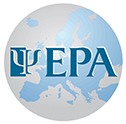Position Statements
EPA Statement on the conflict in Israel, Gaza and beyond
On 20 October 2023, the EPA released a statement to call for a peaceful resolution of the conflict in Israel and Gaza, calling for the prioritization of the delivery of humanitarian and medical aid to those requiring assistance. Read the Statement here.
EPA statements on the situation in Ukraine
On 28 February 2022, the EPA released a statement to call for peaceful resolution of the conflict in Ukraine. Read the full statement here.
On 9 March 2022, the EPA published a second statement to announce the establishment of an “EPA Network of Solidarity for Ukraine”. Read the full statement here.
On 18 March 2022, the EPA released a third statement to announce its set of actions to deal with the “Ukraine Crisis”. Read the full statement here.
On 26 April 2022, the EPA issued a fourth statement on the additional actions taken in light of the ongoing war in Ukraine. Read the full statement here.
In June 2022, the EPA and the Committee on Ethical Issues issued a fifth statement and call for action to raise awareness on the mental health consequences of the war in Ukraine. Read the full statement here.
EPA statement on “conversion therapies” and LGBTQ Patients
The EPA publishes a statement to express its position concerning the so called “conversion therapies” for LGBTQ patients. The EPA encourages legislation that bans such “therapies”, which constitute a significant risk of causing harm and violating human rights. Read the full statement here.
EPA-Europe Region World Physiotherapy statement on “Better Mental Health Together”
On the occasion of the 2021 European Public Health Week, the European Psychiatric Association (EPA) join forces with the Europe Region World Physiotherapy to launch a statement on the importance of healthcare professionals’ collaboration to optimize mental and physical health care. Read the full statement here.
EPA Statement in response to Turkey’s withdrawal from the Istanbul Convention
The EPA releases a statement to express concern about the Turkey’s Presidential decision to withdraw from the Council of Europe Convention on Preventing and Combating Violence Against Women and Domestic Violence (the Istanbul Convention). The EPA statement can be found here.
EPA Position Paper on United Nations Convention on the rights of persons with disabilities
The EPA joins other associations in commending the United Nations’ commitment to promote the rights of persons with disabilities, and in identifying mental health as a global priority. Please find here the EPA position paper on United Nations convention on the rights of persons with disabilities needs to be interpreted on the basis of scientific evidence regarding psychiatry, produced by the EPA Executive Committee and the EPA Committee on Ethical Issues.
EPA Position Paper on Improving the Image of Psychiatry and Psychiatrists
Psychiatry is an exciting and growing medical specialty that has seen an exponential growth in knowledge and understanding accompanied by ever increasing excellence in quality of clinical care. Therefore, the EPA aims to achieve equitable care for mental illness and the mentally ill as one of its longstanding goals. Please find here the EPA position paper on Improving the Image of Psychiatry and Psychiatrists.
Authors: J. Beezhold, W. Gaebel, S. Galderisi, P. Gorwood, M. Martin-Carrasco, D. Wasserman, on behalf of EPA Board members.
Published in European Psychiatry (Vol. 42, May 2017)
EPA Position Paper on Psychiatric Care of Refugees in Europe
The EPA is strongly concerned by the impact of the current refugee migration crisis on mental health care in Europe. As recent developments have made the situation particularly challenging for the healthcare systems in the different EU Member States. As for mental health in particular, most services have been coping with an increasing demand related to psychiatric illnesses, limited healthcare resources, decreasing numbers of trained specialists and new legal requirements.
Within this context, the EPA has sent the European Commission and its National Psychiatric Association (NPA) Members an EPA Position statement on Psychiatric Care of Refugees in Europe, aiming to increase attention to the importance of appropriate and timely provision of mental health care to refugees and migrants in Europe.
Support of the DGPPN Statement on the crash of flight 4U9525
The German Association for Psychiatry, Psychotherapy and Psychosomatics (DGPPN), Professional Association of German Specialists for Neurology and Psychiatry (BVDN) and Professional Association of German Specialists in Psychiatry and Psychotherapy (BVDP) wrote a joint statement about the crash of Germanwings flight 4U9525. The European Psychiatric Association (EPA) fully supports this statement and its dissemination to counteract increasing stigma of people with mental diseases.
EPA Position Statement 2015
The UN Commission on Narcotic Drugs, 58th Session, was asked to review a proposal to place ketamine in Schedule I of the 1971 Convention (E/CN.7/2015/7 and E/CN.7/2015/8). A wide range of national and international civil society organisations, including medical associations, have voiced concern about the proposal and endorsed the Fact Sheet on the Proposal to Discuss International Scheduling of Ketamine at the 58th CND. To support the fact sheet and raise awareness, the EPA wrote the EPA Position Statement on Ketamine in Psychiatric treatment and research.
The fact sheet is available in several languages: English version, French version, Spanish version.
EPA Position Statement 2009
In 2009 the EPA published a practical guidance on the prevention of Cardiovascular disease (CVD) and diabetes in people with severe mental illness (SMI)* (European Psychiatry Journal Vol 24 – N° 6 – September 2009), in consultation with and supported by the European Society of Cardiology (ESC) and the European Association for the Study of Diabetes (EASD). This joint position statement is designed to show how current European CVD prevention and diabetes guidelines can be optimally applied to patients with SMI, and how psychiatrists can incorporate cardiovascular risk assessment into their daily practice.
The position statement has been translated into several European languages:
